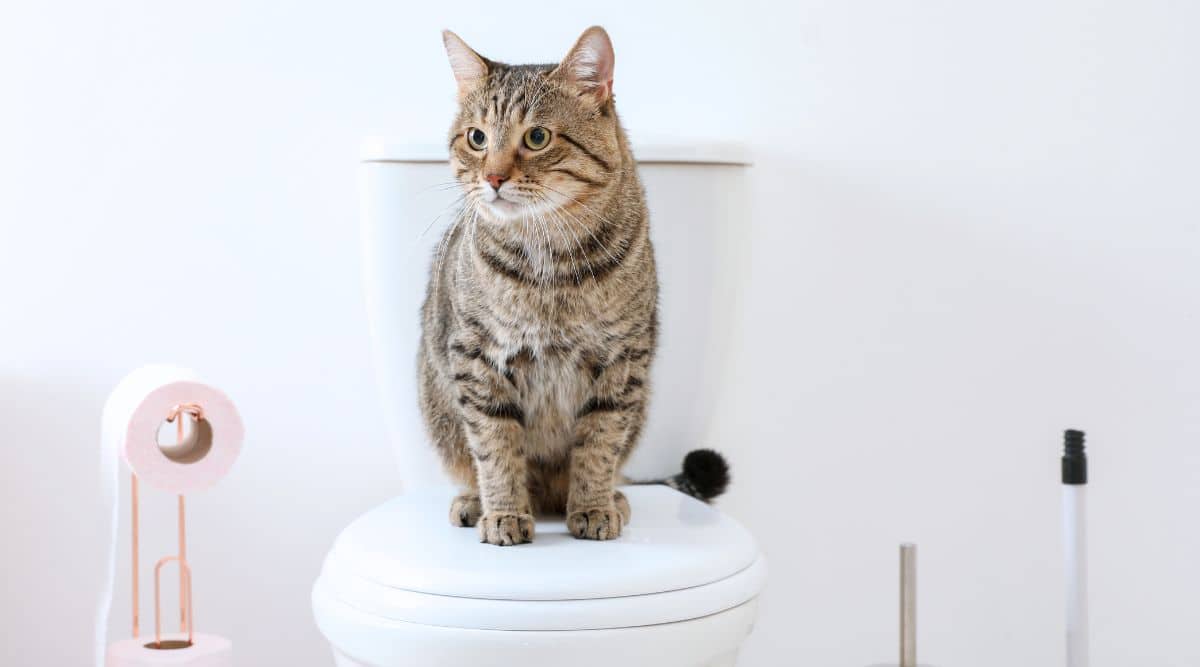Avoid Clogs and Damage: Don't Flush Cat Poop Down Your Toilet - Professional Recommendations
Avoid Clogs and Damage: Don't Flush Cat Poop Down Your Toilet - Professional Recommendations
Blog Article
Were you on the lookout for details about How to Dispose of Cat Poop and Litter Without Plastic Bags?

Introduction
As pet cat owners, it's essential to bear in mind how we dispose of our feline close friends' waste. While it might seem convenient to purge cat poop down the bathroom, this technique can have destructive repercussions for both the atmosphere and human health.
Environmental Impact
Flushing cat poop presents harmful microorganisms and parasites into the supply of water, posing a substantial threat to marine ecological communities. These contaminants can adversely influence aquatic life and concession water quality.
Health and wellness Risks
Along with ecological issues, purging cat waste can also posture health risks to people. Feline feces might include Toxoplasma gondii, a parasite that can cause toxoplasmosis-- a potentially severe disease, particularly for expecting ladies and people with damaged immune systems.
Alternatives to Flushing
Luckily, there are safer and extra accountable methods to throw away feline poop. Consider the following choices:
1. Scoop and Dispose in Trash
The most typical approach of throwing away feline poop is to scoop it into an eco-friendly bag and throw it in the garbage. Be sure to make use of a devoted clutter scoop and throw away the waste immediately.
2. Usage Biodegradable Litter
Opt for naturally degradable feline clutter made from products such as corn or wheat. These clutters are environmentally friendly and can be safely dealt with in the garbage.
3. Bury in the Yard
If you have a backyard, think about hiding cat waste in a designated area away from vegetable gardens and water resources. Be sure to dig deep adequate to avoid contamination of groundwater.
4. Mount a Pet Waste Disposal System
Buy an animal garbage disposal system particularly developed for feline waste. These systems utilize enzymes to break down the waste, minimizing smell and ecological influence.
Final thought
Liable animal possession expands past offering food and shelter-- it likewise includes proper waste administration. By avoiding flushing cat poop down the toilet and opting for alternative disposal techniques, we can decrease our environmental impact and secure human health.
Why You Should Never Flush Cat Poop Down the Toilet
A rose by any other name might smell as sweet, but not all poop is created equal. Toilets, and our sewage systems, are designed for human excrement, not animal waste. It might seem like it couldn’t hurt to toss cat feces into the loo, but it’s not a good idea to flush cat poop in the toilet.
First and foremost, assuming your cat uses a litter box, any waste is going to have litter on it. And even the smallest amount of litter can wreak havoc on plumbing.
Over time, small amounts build up, filling up your septic system. Most litter sold today is clumping; it is made from a type of clay that hardens when it gets wet. Ever tried to scrape old clumps from the bottom of a litter box? You know just how cement-hard it can get!
Now imagine just a small clump of that stuck in your pipes. A simple de-clogger like Drano isn’t going to cut it. And that means it’s going to cost you big time to fix it.
Parasitic Contamination
Believe it or not, your healthy kitty may be harboring a nasty parasite. Only cats excrete Toxoplasma in their feces. Yet it rarely causes serious health issues in the cats that are infected. Most people will be fine too if infected. Only pregnant women and people with compromised immune systems are at risk. (If you’ve ever heard how women who are expecting are excused from litter cleaning duty, Toxoplasma is why.)
But other animals may have a problem if infected with the parasite. And human water treatment systems aren’t designed to handle it. As a result, the systems don’t remove the parasite before discharging wastewater into local waterways. Fish, shellfish, and other marine life — otters in particular — are susceptible to toxoplasma. If exposed, most will end up with brain damage and many will die.
Depending on the species of fish, they may end up on someone’s fish hook and, ultimately on someone’s dinner plate. If that someone has a chronic illness, they’re at risk.
Skip the Toilet Training
We know there are folks out there who like to toilet train their cats. And we give them props, it takes a lot of work. But thanks to the toxoplasma, it’s not a good idea.

I was introduced to that article about How to Dispose of Cat Poop and Litter Without Plastic Bags from someone on a different blog. Are you aware of someone else who is enthusiastic about the topic? Do not hesitate to share it. Many thanks for going through it.
Explore Now Report this page